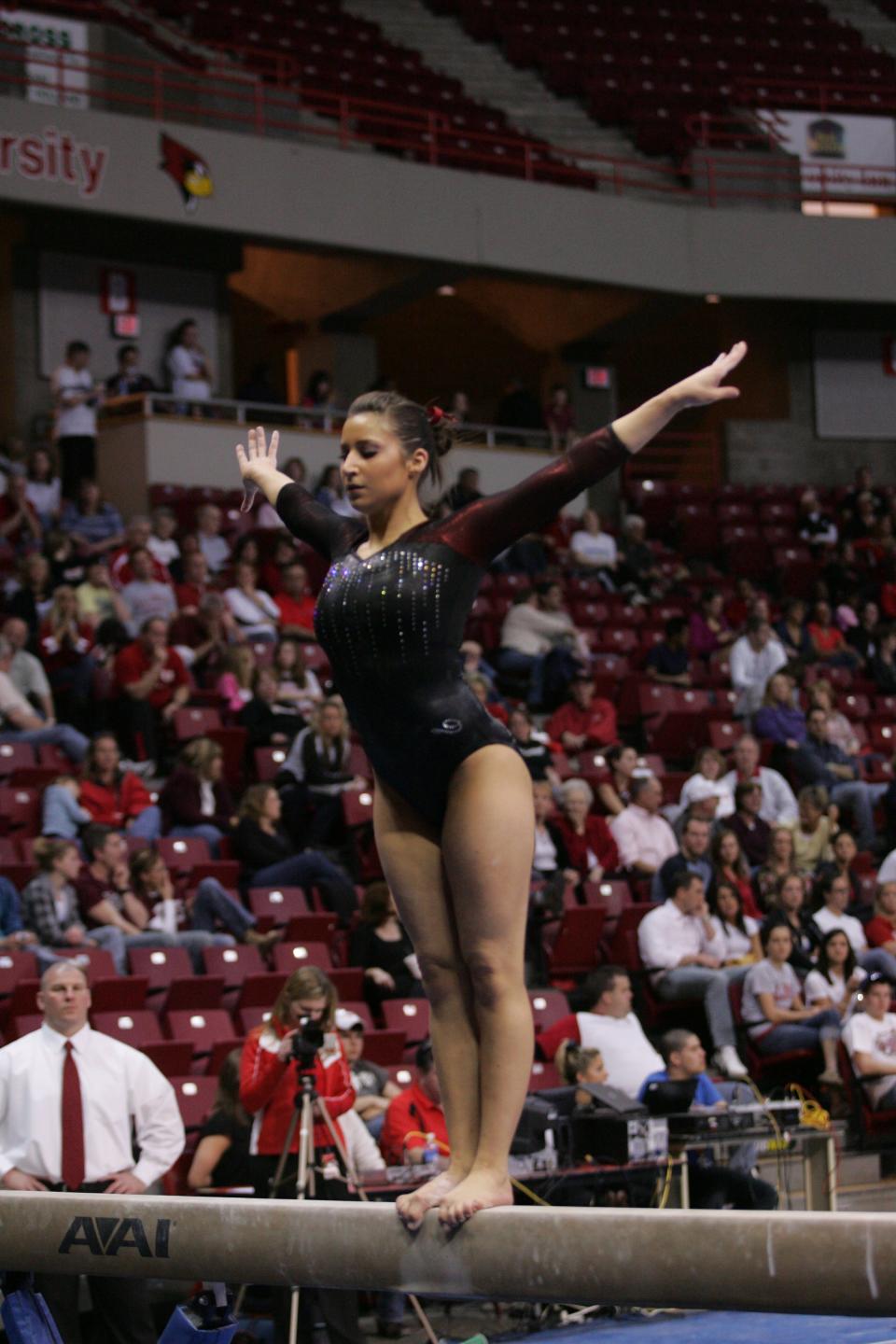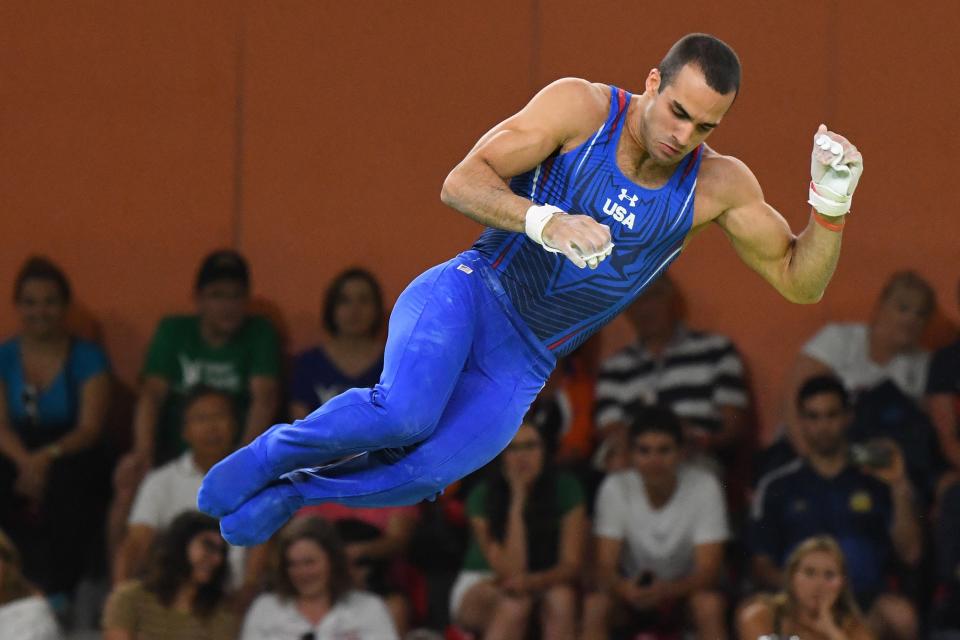'They can find the bravery to say no now': How Simone Biles' courage can inspire young gymnasts
Andrea Orris felt the innate need to defend Simone Biles.
The former Division I gymnast and coach took issue with detractors spreading the notion that Biles was "quitting" when she withdrew from all but one of her individual events at the Tokyo Games several weeks ago.
Orris wrote an Instagram story shortly after the backlash and it quickly went viral. It said, in part: "That girl has endured more trauma by the age of 24 than most people will ever go through in a lifetime."
Biles quickly re-shared the post and because the four-time Olympic medalist hadn't spoken publicly at the time, Orris became almost like a spokeswoman for the winningest gymnast of all-time.
Now Orris wants everyone to know just how influential and far-reaching Biles' courage can transcend.

"What everyone outside of the gymnastics world doesn't understand is how a people-pleasing and coach-pleasing sport like this can lead to serious psychological harm. Or worse," Orris, a standout at Illinois State University from 2008-10, told USA TODAY Sports. "When the greatest gymnast in history says, 'no,' with all of the pressure in the world on her, that tells little girls in their gym that they can also say no even though their coach might be making them feel like 'yes' is the only answer. They can find the bravery to say no now.
"Simone could've been seriously injured and instead of being this symbol of perfection that gymnasts are hurting themselves trying to become, she became very human."
Biles cited putting her mental and physical health first at Tokyo, noting that she was experiencing the twisties, a disorienting condition that can lead to serious injury. Her actions at the Games – where she was favored to win five gold medals and came home with a silver (team) and bronze medal (beam) – have crystallized a spotlight on mental health that follows the advocacy work of Olympic icon Michael Phelps and the most recent public stance of tennis star Naomi Osaka.
More: How Simone Biles inspired Olympic Silver Medalist Nathaniel Coleman
More: Paralympics follow lead of Olympics: No fans during pandemic
Dr. Rufus Spann, a licensed clinical professional counselor with a focus on families and youth as it relates to social justice and inclusion, said Biles' decision not to put her physical health at risk opened the eyes of the world to empathy for something internal versus external, while highlighting the idea that one's identity is more than success.
"Simone put self-care at the forefront and gave a face to invisible pain or struggle – on an international level," Spann said. "She had to be brave and vulnerable to do so. As a result, that can lead to radical change and we can all feel the ripple effects for the next several years.
"Coaches in sports take on dual parental roles and often become the pipeline for identity success. So now it sends the message of, 'I'm not competing to succeed for the coach or the outside world. I'm doing it for me first.' When kids ask themselves, 'Do I have to be what someone else wants me to be?' The answer can be different now."
In the gymnastics world, particularly at the youth level, Biles has planted a seed of courage in a culture that's long had a dangerous definition of mental toughness. Danell Leyva, a two-time silver medalist at the Rio Games and the all-around bronze medalist at the London Games, said Biles' stature as the greatest in the sport makes her decision-making all the more meaningful.

"The coaches of my generation and past generations, unfortunately, look at many gymnasts as dispensable," said Leyva. "It becomes, 'Welp, if you can't do it, who's next?' As a coach myself now at clinics, I try to be the person I felt was missing in my career. What Simone did, in reality, was make a statement that says, 'See the person first.' Instead of being infallible, we see that Simone is deserving of empathy just as much as us."
That notion of being dispensable and adhering to coaches' demands out of fear is what Orris said precipitated her to have an eating disorder. Similar to NFL players who feel the rigors and long-term side effects of multiple concussions later in their retirement, Orris said there is a level of obedience that can often lead to self-shaming that supersedes self-care at a young age for gymnasts – leading to later-in-life struggles.
"Before terrible abuse situations like Larry Nassar happen, there's a culture of athletes trusting coaches with their bodies because one false move could lead to being paralyzed," Orris said. "With that type of power, there can be an abuse of that power. Simone was able to show that the old system wasn't working and it pushes for more accountability with coaches."
Biles revealed in 2018 that she was one of 350 girls and young women who said they were abused by Nassar, often under the guise of medical treatment. The former team doctor sentenced to 60 years in federal prison. Biles said the trauma brought about suicidal thoughts from a toxic culture and that it was difficult to return to the USA Gymnastics training facility where the initial abuse occurred.
"One thing I've learned from my own therapy," Leyva said, "is that we can find it so easy to help other people when we can see their struggles, but it's much harder to face all the mirrors of your own feelings. Simone clearly has done her own therapy and faced some of her own pain in a way that made her decision for self-love more natural.
"I remember seeing a picture of Simone in the mixed zone at the Rio Games, pausing and watching me win the silver medal in the (horizontal) bars and feeling so happy for her support. Then to see her supporting her teammates at the (Tokyo) Games, she wasn't hiding, she was front and center wanting their success. That's a true champion right there. I feel similarly so proud of her now."
This article originally appeared on USA TODAY: Simone Biles' Olympics gave mental health courage to young gymnasts

